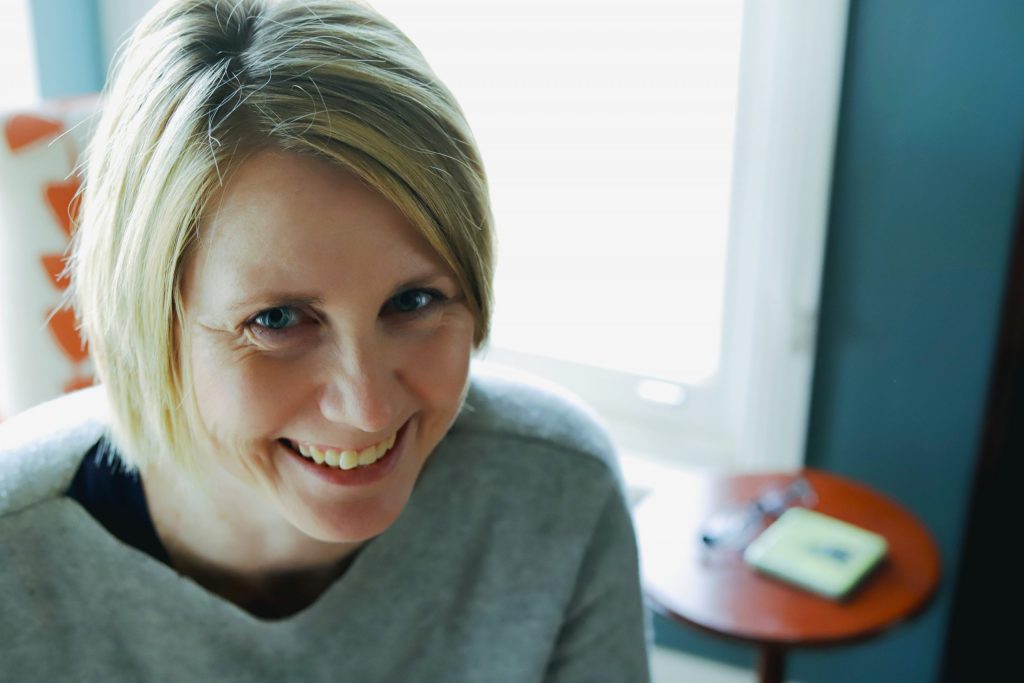Meet the Winners of the 2023 Rachel Funari Prize for Fiction: 2nd Place, “Little Battles Everywhere” by Karen Howie Casey

meet the winners of the 2023 rachel funari prize for fiction: 2nd place, “little battles everywhere” by karen howie casey
Karen Howie Casey
Karen Howie Casey’s story Little Battles Everywhere placed second in the 2023 Rachel Funari Prize for Fiction. Here’s a Q&A with Karen, plus her award-winning story!
*
Congratulations on placing second in this year’s RFP for Fiction, Karen! What do you think makes a great short story?
One that grabs you immediately, tugs you along and pops you out the other end before you realise a few thousand words have passed. What does this for me is a combination of beautiful, understated prose, emotive characters, subtle but effective twists and a full-bodied storyline that makes you pause at the end, story still in hand. Do that in a tight space and I’m yours.
In Little Battles Everywhere, two women affected by trauma and mental illness face off on a busy Melbourne street as they attempt to regain control of their worlds the only way they know how: in small but powerful increments. What inspired you to write this particular story?
Mental health, disability and the support structures around those are ongoing, prominent discussions, especially post-Covid. My children’s school talks about it, they run workshops on mental health first aid, we have conversations at home. I have friends too who work in disability support and psychology, or care for someone with mental illness or disability. The character Noelene formed from those conversations. She is deeply troubled and extremely challenging for the people in her life. But she is powerful. She has found power in the tiniest spaces. When the theme ‘Revolt’ came up, I had recently finished editing a manuscript in which Noelene was a supporting character, so she was fresh and fully formed in my head. She immediately stood out as the perfect character to carry that theme and the story I wanted to develop around it.
The judges commented that your story ‘features compelling prose that is expertly controlled [and] demonstrates [your] ability to sustain tension from beginning to end, and a clear understanding of developing complex characters in shortform narrative’. When you’re working on something new, what comes first: the character(s), the setting, or the story? Or is it something else entirely? And how do you get inside the minds of your characters?
For short story, particularly when writing to a theme, the characters come first because they need to be the right one to carry the theme. For a longer project, it’s story – even the seed of one – followed by structure. When I sit down to start a new manuscript, I know how I want the book to open. I know what the last scene will be. I have a good idea of how I want to tell the story. My characters though are skeletal. I might have background ideas on them but until the story begins to unfold, until they’re on the page reacting to situations, making decisions, interacting with each other, they’re still strangers to me. As their personalities emerge, I might do more research – psychology reports for instance – that help inform the why and what next. When I need to get behind their eyes, I play out their physical reaction – facial expressions, hand gestures, speech and tone. This helps me translate the physical into words, which I hope create a vivid picture and evoke emotion for the reader.
What does a typical working day look like for you?
I start with a long morning walk, listening to a writers’ podcast or an audiobook. That sets me up for the day, particularly if I’m working on fiction. As a writer still navigating the road to traditional publication, the books and podcasts inspire me to just…keep…going….
Coffee is always next. I grab a takeaway, talk and laugh for too long with the wonderful ladies at my favourite café, then go to my local library where I’ll spend the morning either working on a fiction project, or paid freelance jobs – digital newsletters, media releases, website content, features, event planning, admin. I head to my home office in the early afternoon, where I’ll continue work, take and make calls, attend a Zoom meeting sometimes. The shift from the library to home helps me reboot and refocus. Sometimes I even work in my car for a change of scenery. I’ll park in a busy part of town, close to the action. Promise, it’s not weird. It’s literally character building. Late afternoon, I nip out to collect my kids after school, then return to the home office to wrap up and make a list of items and ideas to explore tomorrow.
The Rachel Funari Prize for Fiction calls for stories by women and non-binary writers. What’s your view on diverse representation in publishing?
Being a straight, white, middle-class ’80’s child, it initially surprised and confused me when diverse characters and themes began showing up in stories. It simply wasn’t what I’d grown up with and until I started seeing more diversity, until the conversations began, I hadn’t noticed how narrow the representation was! It made me think and reflect and listen carefully, so that now I expect and support it. How can anyone feel loved, accepted, comfortable in their own skin and space, if they’re always being left off the team, whether that be as a reader looking for themselves in a book, or a writer searching for an avenue to share or make a living off their craft? And how is anyone else going to begin to understand what that feels like in order to prompt change if there is no one telling the story? I’m still a straight, white, middle-class ’80’s child, so while I could speak from my own experience, or help someone tell their story (as a journalist), I don’t believe I could portray their lived experience with all its nuances as well as they would. Opportunity and space need to be made for diverse creatives to do that, and then also to be able to share their work. And in the meantime, I can diversify the characters in my own work so that it reflects the real world, going some way in normalising the fact that a zillion types of people exist and deserve equal standing space.
Why did you enter this year’s Rachel Funari Prize for Fiction?
I was between manuscripts and finding it hard to leave the one I’d most recently finished. When I came across the theme for the Rachel Funari Prize, it plunged me straight back into the book I was trying to leave and every conversation I’d had about disability support and mental health. And the ideas kept coming and the buzz kept buzzing, so I got excited and followed the lead.
Let’s talk books. What’s the last book you read? What are you currently reading? And what’s on your TBR pile?
I thought you’d never ask! Okay, so I tend to ‘read’ simultaneous hardcopy and audio books. And ebooks (there’s a lot of waiting around in parenting!) So, last read: Love & Virtue by Diana Reid and Someone Else’s Shoes by Jojo Moyes. Currently reading: Wake by Shelley Burr and The Secret Keeper by Kate Morton. TBR pile? As it stands on my bedside table, as TV bookends, on my desk, on reserve with Borrow Box and noted on my phone so I don’t forget everything anyone ever recommended: The Year the Maps Changed by Danielle Binks (okay, I’ll admit I’m a few pages in but I swear I was just going to pick it up to enjoy that new-book feeling), Chai Time at Cinnamon Gardens by Shankari Chandran, Tuesdays with Morrie by Mitch Albom, Fire with Fire by Candice Fox, Love Stories by Trent Dalton (again, touched it, but it’s a hard cover people!), Dinner with the Schnabels by Toni Jordan, The Bandit Queen by Parini Shroff, Days End by Gary Disher, A Brief Affair by Alex Miller…I have more, do you want more?
If you could read only one book (or story) and nothing more for the rest of your life, what would it be, and why?
I’m going to pretend you didn’t ask that. See above. I can’t possibly choose a favourite child book, or be restricted to one piece of chocolate story for a lifetime! On a dreary Sunday, a twisted crime novel will absorb me. On a lonely afternoon, a character-driven book keeps me company. When I’m feeling sharp and productive, I want something to think about. And the story that manages to fill those shoes in that moment will stay with me, even when the next one comes along. As a true Libran, I therefore declare my love for ALL the things. Let’s never speak of this again.
What is your earliest literary memory? Did you have any favourite books or authors growing up? How have your reading tastes changed over time?
My earliest, or at least my most prominent, literary memory is my Grade 2 teacher noticing my love for writing and calling my mum to suggest taking me to an upcoming writers’ festival. On a school day! There were authors and illustrators everywhere. Books to run my fingers over. Book people! Pig. In. Mud.
As far as favourite authors go, I was an Enid Blyton fan as a kid, then moved onto Judy Bloom. I had a stint in my late teens where I couldn’t decide what I liked so I read anything my mum and dad had on their shelf – Virginia Andrews, Mauve Binchy, Jeffrey Archer, a random, bright yellow book of self-published poetry. At university, I read what I thought I should be reading as a literary student – Leo Tolstoy, Charles Dickens, Shakespeare and anything on the Miles Franklin Award list. My creative writing tutor eventually steered me back to reading whatever I enjoyed. It took me a while to work that out. A friend introduced me to Tim Winton’s Cloudstreet and after that I picked up every Tim Winton book and still do. I’ve enjoyed a Jody Picoult and Lianne Moriarty phase, and an ongoing Elizabeth Strout, Sally Hepworth and new Australian author phase. Podcasts about authors and books have led me to so many more stories, in all kinds of genres. I’ll buy and borrow books that wouldn’t have caught my eye if I hadn’t heard an interview with the author. I read far more broadly now than I did when I was a child, or even a young adult. The Australian book market is rich with talent.
What does success look like to you?
Easy! To one day make a living, modest or otherwise, by writing books and short stories that are read, enjoyed and shared.
Where can people follow your work? (publications, social media, etc)
My website karencaseyauthor.com and, when I’m excited about something writerly (like placing second in the Rachel Funari Prize!), ALL the socials. Be warned though, I do get excited over cute and/or comedic animals, dancing kids, books stacked like Christmas trees and all writing achievements – big, small, tiny, mine, yours. Find me on LinkedIn, Instagram, Facebook under Karen Howie Casey Author.
*
Noelene was shoeless today. Her dress was sheer and underwear absent. She leant against a traffic pole, flicking her teardrop earring back and forth.
I’d convinced her to drape a blanket over her shoulders at least. The deal had cost me a large tin of Milo and another Saturday afternoon away from my son. Enticing her off the road required a whole other bargain though: a litre of milk once she was home. One more litre if she took her medication. With a hard sniff, she’d agreed. Few people knew Noelene the way I did.
‘Come on.’ I held out my hand to her. My bangles tinkled then settled, leaving a taut silence between us. Patience, I reminded myself. But it was hard. Work expected me back sooner than this. My son was waiting at home. I wriggled my hand again. ‘Please, Noelene. It really is time to go.’
I raised my voice this time. It was against the rules, but we’d been here so long, and Bourke Street was busy. Traffic had banked up and the footpath bristled with shoppers, though they took a wide berth around Noelene and me. Over the road on Parliament steps, protestors in hospital scrubs were hoisting up signs.
‘Burn out! Walk out!’ they chanted.
Everybody was angry today. I took a breath. Focussed on the sun at my back and let it placate me. Firming up my voice, I tried again.
‘Noelene. Time to go.’
She scoffed.
‘Who says it’s time to go, darling? You?’ She raised an eyebrow, then flicked her only long fingernail at the closest café. ‘Them?’
The couple sitting at an outdoor table looked down, suddenly occupied with their lattes and spoons. The pair were young and well-groomed. Straight-backed too, only a moment ago. Noelene did that to people. Creased and silver-haired, she had far more fight than most onlookers assumed. I’d seen her in action. Today. Last week. Years ago.
I glanced at the time on my phone and gritted my teeth: I should have been back at the office a half hour ago. Raising my eyebrows, I tried to look nonchalant. It had been a mistake giving Noelene my direct number.
She fixed her gaze back on me and raised that long fingernail of hers. Circling it toward the traffic pole, she smiled and pressed the button for the crossing again.
The traffic stopped.
The green man ticked.
Nobody crossed the road.
I tried not to tutt aloud. I caught a driver’s eye in the traffic and he scowled at me, like I was the one interrupting the flow. Sweat sprung to my forehead, my armpits, my hands. It was anger, more than anything else. I tucked my lanyard away and left the driver guessing. This didn’t need to be anyone’s fault.
At the crossing, the red man took over. The lights changed, traffic moved on, the protestors’ chanting grew louder.
‘Burn out! Walk out!’ they cried.
I wanted to look but I couldn’t. I knew not to take my eyes off Noelene in this mood. She was watching me as carefully as I watched her, fiddling with her other earring now.
‘Darling.’ She smirked. ‘Why so blue?’
I focussed on the diamond she flicked back and forth. Those stones were real. Noelene had let me touch them on one of her better days. Told me too how her lover had gifted the earrings while they sailed in Port Phillip Bay. I already knew that story though. It wasn’t hers. The jewellery came from a life she’d strived for, but not quite achieved. The c-section scar on her abdomen from the moment in her life that led to this.
Across the road, the protestors roared. I glanced over without thinking. Placards pulsed, pushing not one singular message but dozens. Fair pay. Time off. Safe nurse to patient ratios. I didn’t get a chance to read them all. I caught Noelene in my peripheral. Her arms were up, the blanket flung to the ground. She turned a slow, purposeful circle, presenting her raw self to the world.
I heard she’d been a model once. Before marriage. Before kids. Before me. I’d never believed it but seeing her now, perhaps it was true.
‘Noelene,’ I said. ‘Blanket. Now.’
Shoppers averted their eyes. Tutting, I rushed forward and snatched up the blanket, whipping it back over her shoulders. When she pushed me away, I went for the tin of Milo at her feet. Her foot snapped up and onto the back of my hand. I buried my nose into my shoulder. She mustn’t have washed in weeks.
‘The blanket was part of the deal, Noelene,’ I said. ‘No blanket. No Milo.’
When she didn’t respond, I held my breath to look up at her. I raised a brow. ‘I could take the milk offer back too?’
She flinched. Her eyes flashed away and after a moment, her foot retreated. She gave a hard sniff before turning to offer her shoulders to me. I draped the blanket back on, and she took the opportunity to activate the crossing again. Sighing heavily, I returned to my post a few metres away.
Traffic stopped.
The green man ticked.
Nobody crossed the road.
A protestor incited the crowd through a megaphone.
‘What do we want?’
‘More staff!’
‘When do we want it?’
‘Now!’
‘What else do we want?’
‘Fair pay!’
‘When do we want it?’
‘Now!’
They’d become more aggressive, led by the megaphone. They were attracting more attention than Noelene. Even I turned back, just for a beat, but that was all Noelene needed.
I heard the car tyres screech first. Then the stench of burnt rubber hit me. When I spun around, a mother was yanking her little girl away, covering the child’s face with a hand. I ran.
‘Noelene!’
Horns blasted. Protestors roared. I batted the smoke away with my hands.
I was overcome when I saw her. She was on her feet, strong as ever, striking the bonnet of the car she had stopped. She leered at the man behind the wheel.
‘Fuck, Noelene!’ I didn’t think when I grabbed her. I tugged hard and she fought me. That was another rule broken. I got her back onto the pavement, fixed the blanket, let her go. My heart was still beating twofold. I hadn’t quite caught my breath. ‘Jesus, Noelene. What the hell was that about?’
I wasn’t expecting an answer, the question just poured out of me. When the protestors’ chant swelled again, I closed my eyes to them.
‘Burn out! Walk out!’
Noelene threw her head back and laughed.
‘What did you expect, darling?’ she said. ‘You left me.’
‘I didn’t leave you, Noelene.’ I rubbed at my temple. ‘I only looked away. I didn’t leave.’
A group of teenagers turned the corner and immediately slowed. They hurried past, whispering. Over the road, the protestors tried on another chant, beating their fists with each word.
‘We! Are! Done!’
I took deep, slow breaths. I could be done too. I could leave Noelene right now, sign off at work, go home to my son. My feet ached. My nerves were frayed, which wasn’t like me. Noelene narrowed her eyes and raised her fingernail to the button for the crossing again. She only toyed with it though, rapping a light tune on the metal.
Even in a monotone, I recognised that tune. It was the nursery rhyme my mother sung to me as a kid. My body sunk, recognising it. There was no strength in my voice anymore.
‘Mum,’ I said. ‘Please.’
Noelene paused. Her smile stuck for a moment before fading. It had been forever since I’d called her that. The last time, it had angered her more than usual. I held her eye for the longest time while the city carried on without us. I didn’t breathe.
‘Mum?’ My voice cracked this time.
I thought she might have given in then. I thought she might have seen me as her daughter for once, instead of her penance. When I was a child, she did that sometimes. She forgave me for being here and sang me that song.
But the moment passed this time. Noelene rose. Pushed her shoulders back. Turned her nose up at me.
I clenched my jaw. My gut churned. I couldn’t stop the disappointment, but I could hide it. I sighed, retrieved my phone, checked the time again. Melbourne Bank would be closing soon. My shift would finish without me. I tucked the phone away and eyed Noelene.
‘The police will be on their way soon,’ I said. ‘You know that right? You’ve upset enough people today. Is that what you want? You want to go home with police, instead of me? Because I can walk away, Noelene. I can leave you here and go home to my family.’
I’d never threatened her before. Not once. But there was something in the atmosphere today. I’d told my son I’d be home straight after work. That we’d go out to lunch, have some school holiday fun. But he would eat without me now. He’d be planted in front of the television, same place I left him this morning. The neighbour would have popped in, checked on him, made decisions about the sort of mother I was. I glanced at the time again. I still had to get back to work for my things. My security pass hung on its lanyard inside my shirt, scratching at me.
Over the road, the protestors had quietened. I thought if I turned around, they’d be watching Noelene and me. They weren’t of course. They had their own battles today. A few protestors were arranging themselves behind a podium at the top of the steps while the rest waited, signs resting. One group redecorated a placard with surgical gloves blown up like balloons, the fingers arranged with tape to flip Parliament the bird. Emergency departments at breaking point, the sign read.
In the distance, police sirens wailed, and Noelene’s stiff body sunk. My eyes flickered to the noise then I held out my hand again.
‘Let’s go,’ I said.
Noelene stared at the ground. After a beat, she rose, but not to her full height this time. Shrugging the blanket down, she drew the two ends across her chest like a shawl, tucked her knees together and squatted elegantly to collect her tin of Milo from the ground. She walked toward me with the stilted grace of someone in heels. I let her pass, then followed a few steps behind, not trusting yet that she would keep moving forward.
At the café, Noelene halted and the couple sitting at the table froze. They were trying not to recoil, I could tell. But I wouldn’t have blamed them if they did.
Noelene flicked out her long fingernail and circled the rim of the cup holding sugar sachets. As the protestors rallied again, as one person took to the microphone, she gave the cup a firm push and sent the sachets sprawling. Shoulders back, she moved on, humming the rhyme she used to sing to me.
*

The sponsors of the 2023 Rachel Funari Prize for Fiction






